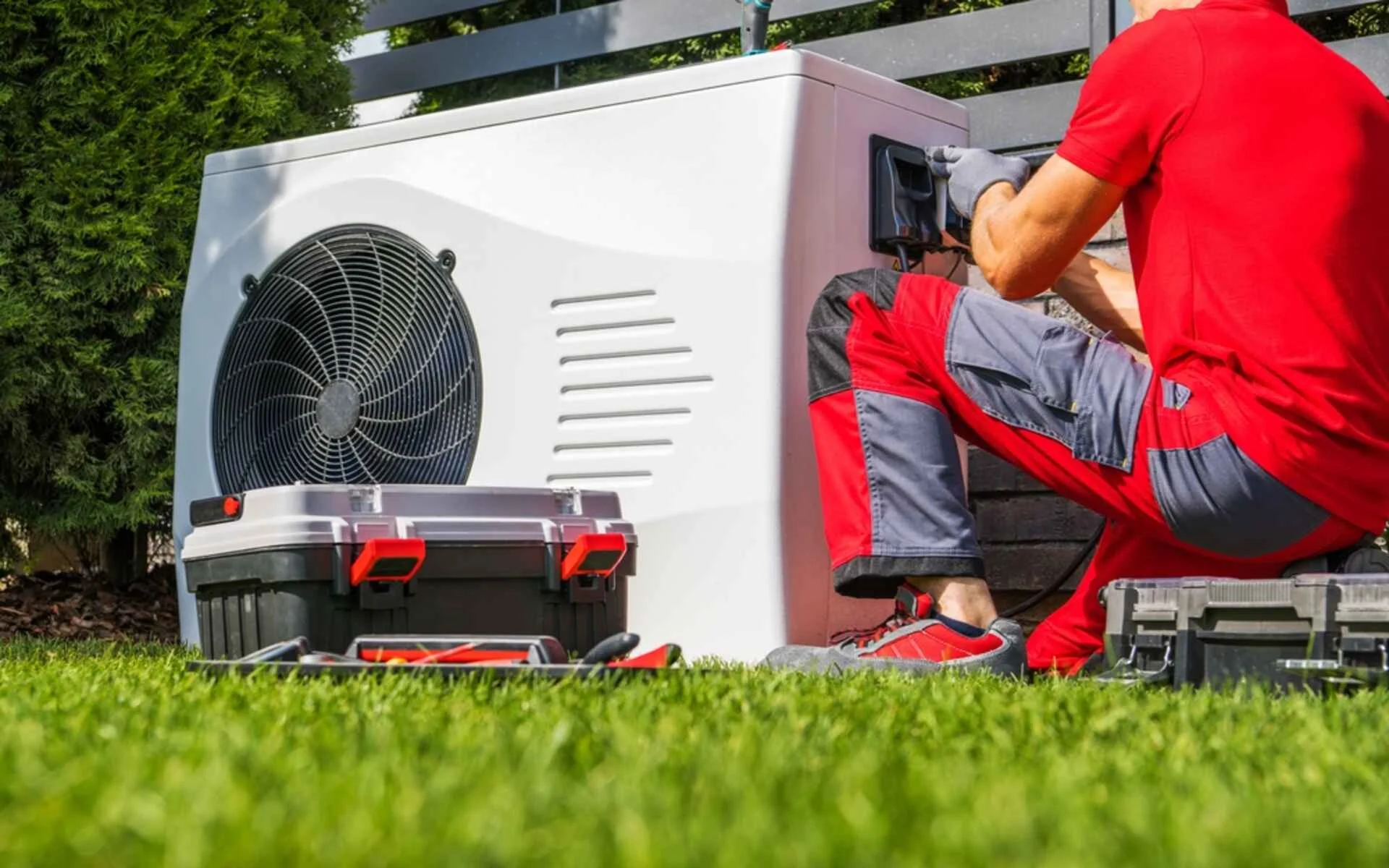

The perfect storm in the supply chain caused by COVID-19 and other shocks changed the way HVAC contractors and suppliers work together. The value of strong, win-win relationships is now glaringly clear.
Simply put, HVAC contractors need HVAC suppliers to get them what they need, when they need it, at the right specifications, and at a reasonable price. Suppliers need to sell their products at a fair price and get paid on time, with minimal hiccups and surprises. The smoother the process goes for each, the more mutually beneficial the relationship will be.
Picking the wrong supplier or doing business with a problem customer can eat into profit margins for contractors and suppliers and compromise job schedules and quality. The worst-case result is angry customers and lost reputations.
The key is to align strategically with your HVAC suppliers. In today’s global supply chain, collaboration and communication are fundamental values. As with other successful relationships, it pays to know your partner and to help them get to know your business. Each of you must focus on planning to prevent issues rather than fighting fires later.
This article will walk you through best practices to achieve that goal.
HVAC suppliers are the crucial link between manufacturers and HVAC contractors. They are middlemen who buy parts and equipment at wholesale prices, warehouse them, and then sell and deliver them to HVAC contractors at a markup. They play a valuable role that manufacturers prefer not to become involved with because warehousing ties up working capital they could use for production. Suppliers also provide client-facing services like taking and expediting orders.
Your supplier choices can affect the quality of products and services you get, availability, and pricing. Just as you need to stay on top of your game to compete, so do suppliers. Inefficient suppliers need to charge more for their products to cover their costs.
Careful selection of HVAC suppliers is your number one job. First, be clear about your business strategy. Are you targeting residential or commercial work or both? In what geographic area? Will you focus on construction or service, or both?
Then, you need in-depth knowledge of your purchasing spend. Analyze what you buy, from whom, at what price, and when. Be sure to analyze down to the unit price level. For example, know how many of each type of filter you buy, how many rooftop units, how many compressors, and where and when you buy them.
Then, study the market and research the suppliers in your area. Put together a Request for Information (RFI) that introduces your firm and explains your history and general business strategy. Include your estimated volumes (not prices) and the types of supplies you buy. Explain what is important to your firm. Then ask each supplier to explain their strategic priorities and how they see themselves aligning with you in these ways:
Find out how much business they do annually and in which areas. Ask them to explain their management structure and history and to supply references to you. Follow up on references. Use structured questionnaires that you can readily evaluate.
Review their responses, eliminate those that do not qualify, and have face-to-face meetings with the rest. Be direct. Ask them to articulate why they believe they would be a good partner.
From those meetings, make a list of your top suppliers. Put together and send a Request for Proposal (RFP) detailing the parts and equipment, quantities, and specifications as gathered in your analysis. Ask for unit pricing for each and a total price bid. Be sure to include:
Your contract should spell out how you will issue purchase orders to obtain items off the contract.
It also should include key performance indicators. Agree on performance standards, and make sure you discuss and agree on these ahead of time. Address processes and time frames to rectify issues.
Send out the RFP and then evaluate responses to select the winner(s) for final negotiations. Be careful not to award too much of your crucial supply needs to one supplier if you can avoid it; so-called “over-concentration” may incur the risk of supplier failure.
This list sounds mechanical, but try not to become so wrapped up in the process that you miss critical facts and observations. Set the tone for openness and collaboration. It’s a business conversation, and you want it to be productive.
Strong, smart negotiations create value. First, be prepared. Know your business needs, volume, and pricing. Talk to friends in the business about what they are paying. Then, go back to your conversations with suppliers and study their strategic priorities.
For example, if they say they want to develop strong relationships in your location, you know you have some leverage. You’ll have more leverage if they have recently lost a major customer. Be as informed as possible so you can accurately assess your position. Be open with the suppliers about where you see opportunities for mutual success.
Remember that price is not everything. You need to be certain that you will get the reliability and quality you need. Low-cost supplies that show up late are not useful.
Know your target pricing from the start. If you have never bid competitively before and have a reasonably strong volume, 10-15% savings is not unachievable. With smaller volumes, savings will be less. Remember that HVAC suppliers have a margin they need to make to survive. You don’t want to force them into a bad deal. It won’t work for either party.
Review the bids side by side. If you see wide discrepancies between suppliers on the same item, question it. You may be able to leverage the competition to drive down the price closer to the lower one.
Look for non-price concessions like having the supplier warehouse manage your inventory at their site and cost.
The key to inventory management is precise, real-time, accurate data based on current and projected needs.
Excess inventory ties up working capital you could invest in your business. Carrying too little inventory can slow deliveries.
Thus, you need to forecast your demand based on projected needs (see the section on supplier projection) and, at the same time, tie supply projections to specific project timelines and delivery dates.
To do this, you need solid, accurate schedules and inventory data available in real time. If you know what you will need, when and where you will need it, and what you have on hand, it is relatively simple to determine what you need to order.
Just-in-time (JIT) ordering helps reduce inventory costs since you order only what you need for a specific period. To do this successfully, you need crystal-clear data from inventory control, and you must be able to calculate contingency amounts using analytics.
Excel files, spreadsheets, and manual inventories are not enough. There is a strong argument for digitizing your inventory management systems. In addition, automating your procurement processes makes sense.
All of the supplier selection and negotiation tactics described so far may seem like a lot of work, and in fact, they are. If you have a moderate to large purchase spend, it makes sense to automate your procurement processes. The first strategy is to implement a digital procurement platform and software to automate all previously covered steps. That way, all of your work is in one place, as is all the data around procurement spend.
Another strategy is to sign up with an organization that does group purchasing, like Raiven. We negotiate deep discounts, service terms, and supply chain priorities so you pay less for HVAC equipment, HVAC, electrical, and plumbing supplies, rental equipment as well as business essentials. Companies like Raiven do all the time-consuming supplier vetting, negotiations, and KPI tracking in exchange for a small membership fee.
Gain access to pre-negotiated discounts of 7%-30% from premier manufacturers and distributors like Alpscontrols, Carrier, Ferguson, Ford, Grainger, Graybar, Home Depot, Koch Filter, Schneider Electric, Sunbelt Rentals, United Rentals, and more!
Raiven is a go-to partner for HVAC contractors, providing unbeatable prices on equipment, parts, and maintenance supplies. They also provide a purchasing platform that makes buying fast and easy. Other key benefits:
The third strategy is to combine the first two, implementing a digital platform with a portfolio of pre-vetted, pre-contracted suppliers. If you are a small to medium-sized firm, this may be optimal for you.
Remember to pick an accessible platform that is fast to implement and easy for your team to use. If it is not, they will not use it.
The post-COVID-19 supply chain world has changed. Squeezing every dollar out of a deal no longer works—if it ever did in the long run. Now, dependability and trust facilitated by open communication is the key to survival and success.
Plan for regular performance management meetings with senior supplier contacts. Keep and circulate minutes for clear communication.
Technology is about speed, accuracy, and accessibility. All those things make interactions between suppliers and HVAC contractors faster, more accurate, and cost-effective. Gone are the days of phone calls, paper POs, and clicking back and forth on supplier portals.
Accurate, accessible, and timely data make all things possible. Inventory control systems let you know what to order and when; digital procurement systems allow you to order it quickly and then track supplier performance in real-time.
Be sure to comply with industry regulations. You do not need the hassles or reputational damage that can come with not complying. Ensure your HVAC suppliers know that you’re dedicated to compliance and expect the same from them from the first conversation.
In your initial RFI, you asked the suppliers to explain how they will assure quality. Hold them to that answer and other aspects of their performance with KPI reviews and audits if necessary. As importantly, be candid about your performance on the contract.
Success in navigating today’s HVAC supply chain requires an emphasis on collaboration and mutual success. Selecting the right suppliers whose strategies align with yours and negotiating win-win deals is a great start, but building trust through open communication after the contract signing is essential.
Are you aligned with your HVAC suppliers? Take the time to find out now and start planning for a great future.
If you want to learn more about maximizing profits by buying smarter, contact Raiven to learn more. They have thousands of HVAC, electrical, and plumbing contractors using their procurement platform.
